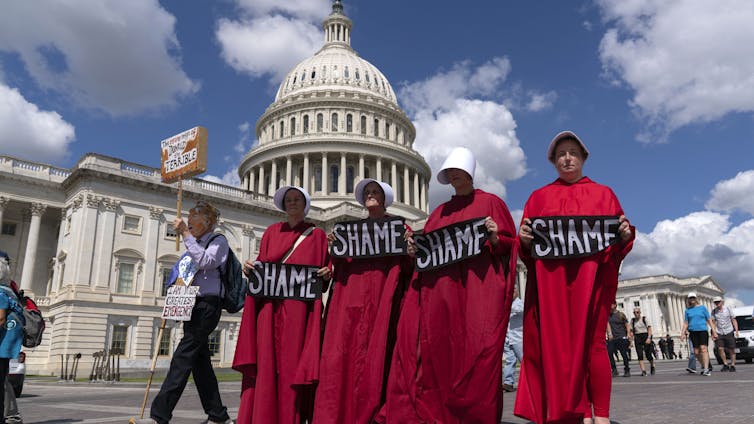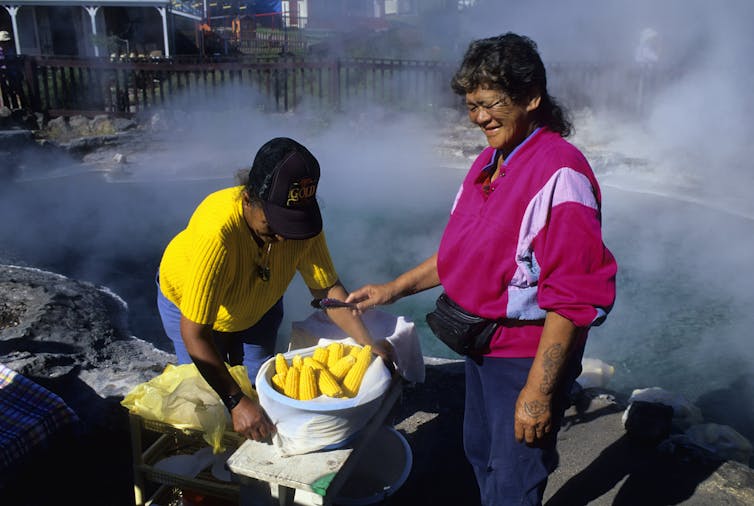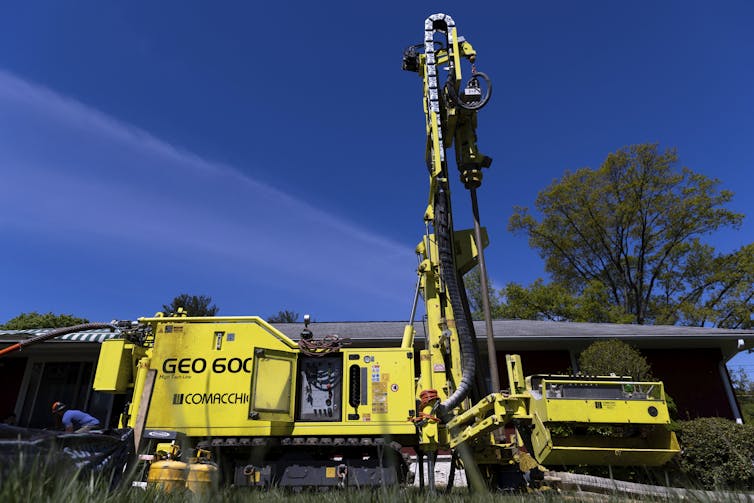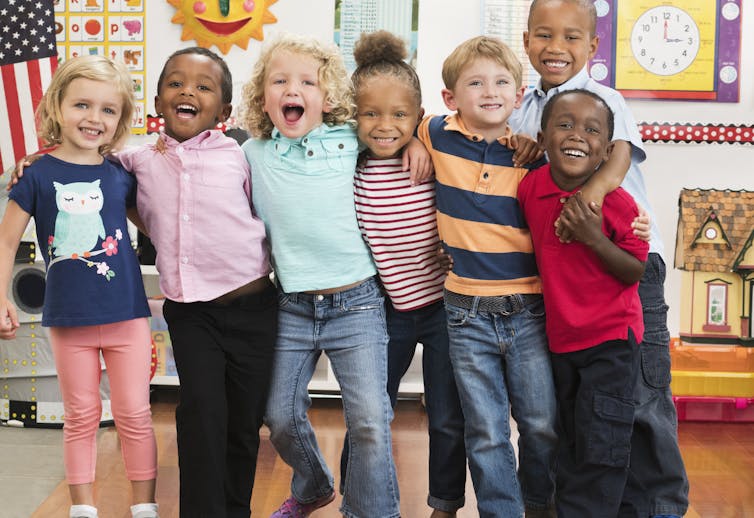10 effective things citizens can do to make change in addition to attending a protest
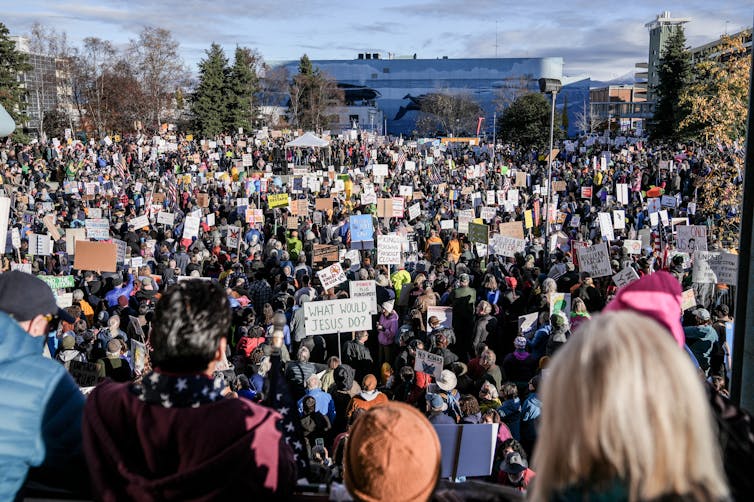
Hasan Akbas/Anadolu via Getty Images
Shelley Inglis, Rutgers University
What happens now?
That may well be the question being asked by “No Kings” protesters, who marched, rallied and danced all over the nation on Saturday, Oct. 18, 2025.
Pro-democracy groups had aimed to encourage large numbers of Americans to demonstrate that “together we are choosing democracy.” They were successful, with crowds turning out for demonstrations in thousands of cities and towns from Anchorage to Miami.
And while multiple GOP leaders had attacked the planned demonstrations, describing them as “hate America” rallies, political science scholars and national security experts agree that the current U.S. administration’s actions are indeed placing the world’s oldest continuous constitutional republic in jeopardy.
Once a democracy starts to erode, it can be difficult to reverse the trend. Only 42% of democracies affected by autocratization – a transformation in governance that erodes democratic safeguards – since 1994 have rebounded after a democratic breakdown, according to Swedish research institute V-Dem.
Often termed “democratic backsliding,” such periods involve government-led changes to rules and norms to weaken individual freedoms and undermine or eliminate checks on power exercised by independent institutions, both governmental and non-governmental.
Democracies that have suffered setbacks vary widely, from Hungary to Brazil. As a longterm practitioner of democracy-building overseas, I know that none of these countries rival the United States’ constitutional traditions, federalist system, economic wealth, military discipline, and vibrant independent media, academia and nonprofit organizations.
Even so, practices used globally to fight democratic backsliding or topple autocracies can be instructive.
In a nutshell: Nonviolent resistance is based on noncooperation with autocratic actions. It has proven more effective in toppling autocracies than violent, armed struggle.
But it requires more than street demonstrations.
Tactics used by pro-democracy movements
So, what does it take for democracies to bounce back from periods of autocratic rule?
Broad-scale, coordinated mobilization of a sufficient percentage of the population against autocratic takeover and for a renewed democratic future is necessary for success.
That momentum can be challenging to generate. Would-be autocrats create environments of fear and powerlessness, using intimidation, overwhelming force or political and legal attacks, and other coercive tactics to force acquiescence and chill democratic pushback.
Autocrats can’t succeed alone. They rely on what scholars call “pillars of support” – a range of government institutions, security forces, business and other sectors in society to obey their will and even bolster their power grabs.
However, everyone in society has power to erode autocratic support in various ways. While individual efforts are important, collective action increases impact and mitigates the risks of reprisals for standing up to individuals or organizations.
Here are some of the tactics used by those movements across the world:
1. Refuse unlawful, corrupt demands
When enough individuals in critical roles and institutions – the military, civil servants, corporate leaders, state government and judges – refuse to implement autocratic orders, it can slow or even stop an autocratic takeover. In South Korea, parts of the civil service, legislature and military declined to support President Yoon Suk Yeol’s imposition of martial law in 2024, foiling his autocratic move.
2. Visibly bolster the rule of law
Where would-be autocrats disregard legal restraints and install their supporters in the highest courts, individual challenges to overreach, even if successful, can be insufficient. In Poland, legal challenges in courts combined with public education by the judiciary, lawyers’ associations initiatives and street protests like the “March of a Thousand Robes” in 2020 to signal widespread repudiation of the autocratic government’s attacks on the rule of law.
3. Unite in opposition
This year’s Nobel Peace Prize winner, Maria Corina Machado from Venezuela, is an example of how political parties and leaders who cooperate across differences can offer an alternative vision.
Novel candidates can undermine the ability of autocrats to sow division and demonize major opponents. However, coalitions can be difficult to form and sustain to win. Based on experiences overseas, historian Anne Applebaum, author of “Autocracy Inc.,” has called for a pro-democracy coalition in the U.S. that could unite independents, Libertarians, the Green Party, dissident Republicans and the Democratic Party.
4. Harness economic power
Everyday consumers can pressure wealthy elites and corporations that acquiesce to, or prop up, would-be autocrats through boycotts and other methods, like the “Tesla Takedown” in the U.S. that preceded a drop in Tesla share value and owner Elon Musk’s departure from his government role. General strikes, led by labor unions and professional associations, as in Sudan or Myanmar, can be particularly effective.
5. Preempt electoral manipulation
Voting autocrats out of office remains the best way to restore democracy, demonstrated recently by the u-turn in Brazil, where a pro-democracy candidate defeated the hard-right incumbent. But this requires strategic action to keep elections truly free and fair well in advance of election day.
6. Organize your community
As in campaigns in India starting in 2020 and Chile in 2019, participating in community or private conversation forums, local town halls or councils, and nonpartisan student, veterans, farmers, women’s and religious groups provides the space to share concerns, exchange ideas and create avenues to take action. Often starting with trusted networks, local initiatives can tap into broader statewide or national efforts to defend democracy.
7. Shape the story
Driving public opinion and communicating effectively is critical to pro-democracy efforts. Serbian students created one of the largest protest movements in decades starting in 2024 using creative resistance – artistic expression, such as visual mediums, satire and social media – to expose an autocrat’s weaknesses, reduce fear and hopelessness and build collective symbolism and resilience.
8. Build bridges and democratic alternatives
Bringing together people across ideological and other divides can increase understanding and counter political polarization, particularly when religious leaders are involved. Even in autocratic countries like Turkey or during wartime as in Ukraine, deepening democratic practices at state and local levels, like citizen assemblies and the use of technologies that improve the quality of public decision-making, can demonstrate ways to govern differently.
Parallel institutions, such as schools and tax systems operating outside the formal repressive system, like during Slobodan Milosevic’s decade-long crackdown in Kosovo, have sustained non-cooperation and shaped a future vision.
9. Document abuses, protect people, reinforce truth
With today’s technologies, every citizen can record repressive incidents, track corruption and archive historical evidence such as preserving proof of slavery at danger of being removed in public museums in the U.S., or collecting documentation of human rights violations in Syria. This can also entail bearing witness, including by accompanying those most targeted with abusive government tactics. These techniques can bolster the survival of independent and evidence-based media, science and collective memory.
10. Mitigate risk, learn and innovate
The success rate of nonviolent civil resistance is declining while repressive tactics by autocrats are evolving. Democracy defenders are forced to rapidly adjust, consistently train, prepare for diverse scenarios, try new techniques and strategically support each other.
International solidarity from global institutions, like European Union support for democrats in Belarus or Georgia, or online movements, like the Milk Tea Alliance across Southeast Asia, can bolster efforts.
Democracy’s future?
The end of American democracy is not a foregone conclusion, despite the unprecedented rate of its decline. It will depend, in part, on the choices made by every American.
With autocracies outnumbering democracies for the first time in 20 years, and only 12% of the world’s population now living in a liberal democracy, the future of the global democratic experiment may well depend on the people of the United States.![]()
Shelley Inglis, Senior Visiting Scholar with the Center for the Study of Genocide and Human Rights, Rutgers University
This article is republished from The Conversation under a Creative Commons license. Read the original article.

